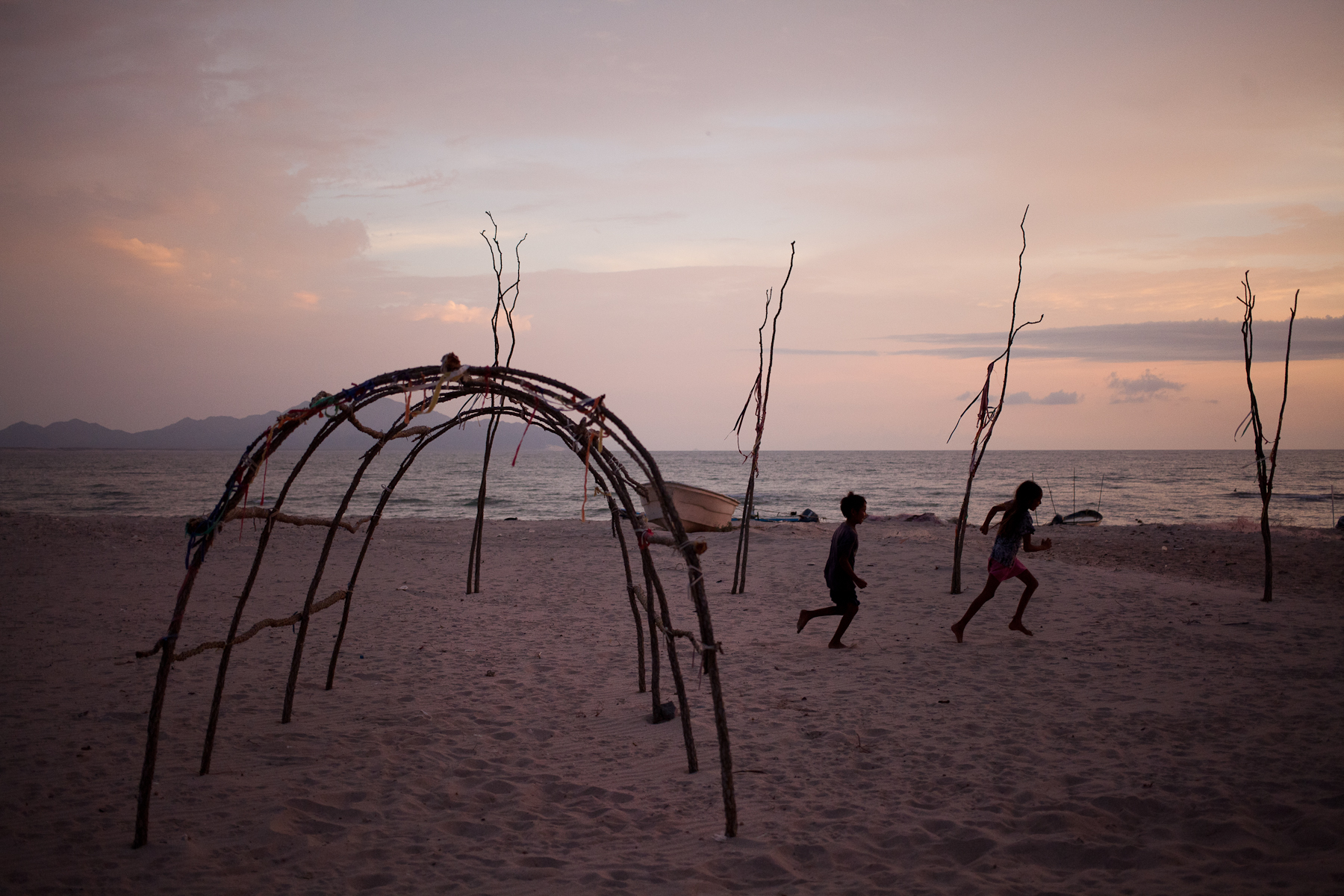In March, the Pulitzer Center drew attention to the state of our oceans at the DC Environmental Film Festival with the screening of short films by Jim Wickens, Erik Vance and Craig Welch. While in DC, Wickens and Vance also discussed their projects with over 400 middle and high school students. The visits to schools were organized with assistance from Sally Schwartz of the DC Center for Global Education and Leadership.
***
Wickens, an investigative journalist who has reported from over 50 countries, visited the Columbia Heights Education Campus, George Mason High School, Cesar Chavez Public Charter School, Washington International School and Capital City Charter School. The students attended as part of their environmental science, international relations, biology or journalism classes.
Wickens showed films to which he has contributed – "Grinding Nemo," "Smuggling Baby Elephants," "Blood Harvest" and "Murky Waters" – during the presentations. He led lively conversations with the students about human rights abuses and environmental dangers in the Thai and Bangladeshi shrimp industries; the ugly underbelly of Italian soft-drink production; and animal abuse and exploitation in Thailand.
"There's no such thing as cheap meat," Wickens said repeatedly, emphasizing that seemingly inexpensive food has "secret costs."
In the first class the presentation ran over allotted class time and all but six students stayed late to watch a second film. Some students gasped audibly when "Grinding Nemo" explored the modern-day slavery of Burmese migrants fishing shrimp to export to the West.
Wickens also used a clever metaphor to explain bottom trawling, the controversial fishing practice of dragging massive nets behind a boat. He told the students to pretend they wanted a hamburger and so needed to capture one cow, and then conjured the image of a helicopter sweeping over the United States with a net scraping up every building, car, tree, dumpster and rat in an attempt to catch that cow.
"I don't wanna eat fish anymore," one girl murmured after watching the films.
The students and Wickens also discussed the differences between advocacy and journalism and the nature of his dangerous work as an often-undercover investigative journalist whose job, as Wickens puts it, is "to cause trouble and create impact."
"How many countries are you banned from?" one student asked. Wickens laughed. As journalists, he explained, he and his teams are often unwelcome in the countries they scrutinize. He told a story about leaving a Namibian jail with the film for which he'd been arrested hidden in his underwear.
Classes discussed their own ideas for investigative stories and asked what they could do to help remedy the situations Wickens' team explored in the films.
"We have to make being environmentally friendly a happy event," said one student, referring to the economic tangles that create obstacles for sustainability.
"Tell people. Write about it," Wickens urged. "I think the trick is to question everything you're told, especially in the media." He suggested that the students go to their local Chipotle or ask to visit the chain's nearest farm and speak to the workers. The kids grinned. "You can do this," Wickens said.
"If you think you can't make a difference," he told each class, "start thinking of the last time you tried sleeping in a room with one mosquito. How badly did you sleep that night?"
***
Vance, a Mexico City-based science writer, discussed his ongoing reporting project about the transformation of the Sea of Cortez and the people that live in the region with over 200 high school students at three high schools.
At Wilson High School and Bethesda-Chevy Chase High School, Vance spoke with groups of students studying environmental science, social studies and peace studies, focusing on concepts key to understanding overfishing in the Sea of Cortez. They discussed shifting baselines, comparing the wildlife John Steinbeck documented on a trek to Baja California in the 1940s to what scientists found in the same place in 2004. Students identified shifting baselines in their own lives and discussed a well-known example of shifting baselines—climate change.
Vance also explained the concepts of bycatch and eating down the food chain in relation to shrimp and shark fishing. He described how species needing longer to mature, such as large sharks, are disappearing from the food chain. In describing bycatch, the fish unintentionally caught in shrimp nets, Vance told students that fishermen catch pounds of throwaway fish for every pound of useable shrimp. "On a good day, the nets will be 40-60: 40 forty percent shrimp and 60 percent bycatch," said Vance. "Later in the season, ratios can be 10 percent shrimp and 90 percent bycatch."
Vance ended each session with a focus on the people who are directly affected by the consequences of overfishing, tying environmental concerns together with economic realities in Mexico.
"What happens when the last fish is gone?" asked Vance, as he showed photographs of the Seri people, an indigenous group living in the area, taken by Dominic Bracco II, his partner on the project.
Students identified drug trafficking as an alternative way for fishing communities to earn a living. Some of the students had participated in a discussion with Pulitzer Center grantee Nick Miroff, who shared his work on drug trafficking in Mexico and Central America last month.
At Tatyana Safronova's journalism class at Washington International School, Vance spoke about the world of science reporting. He encouraged students to not be intimidated by academic papers when conducting research, emphasized the importance of asking clarifying questions when interviewing experts, and explained how to find reliable articles. Vance also shared his experience working as a freelancer in a rapidly changing media landscape and highlighted creative ways journalists fund their projects.
***
Interested in future school visit opportunities with our journalists or photographers? Email us at [email protected].
For more information about our education programs and resources, sign up for our education newsletter and check out our reporting-based curricular materials.


















